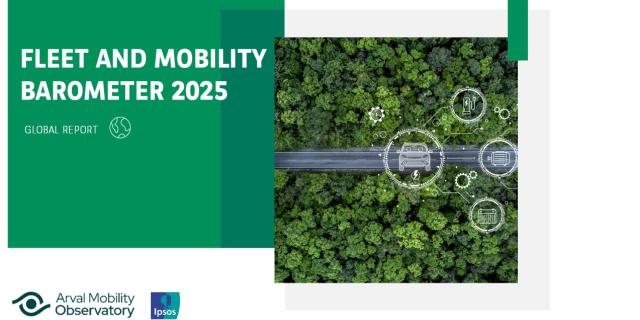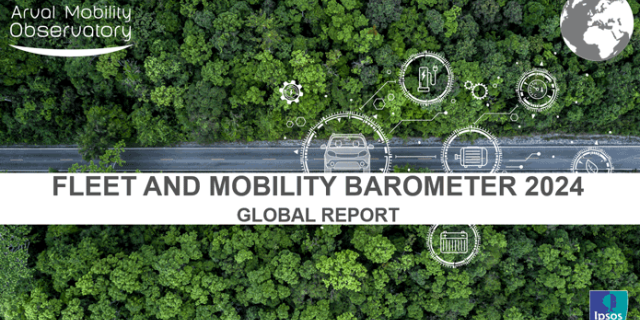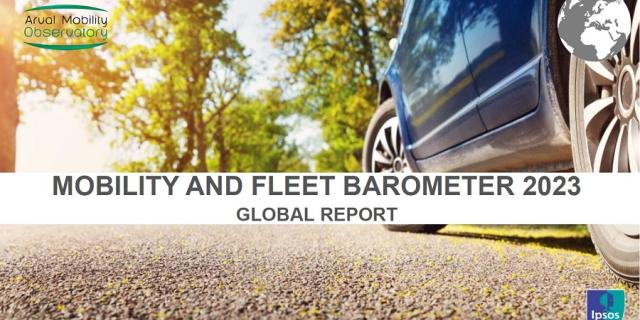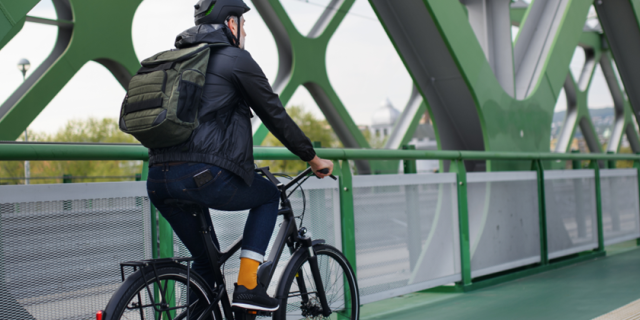
Our journey towards a more responsible and sustainable future
In today’s world, urgent environmental challenges demand immediate action. Human influence accounts for 100% of the global warming observed these recent years, primarily driven by activities involving fossil fuels usage and deforestation, which continue to intensify climate change worldwide. The accumulation of CO2 in the atmosphere particularly presents a critical concern as it contributes to more global warming.
This emphasizes the urgency of our efforts, and further underlines the need to act, and for that, we are committed to our Climate Action initiatives. Through strategic partnerships, innovative and proactive practices, we aim to minimize our environmental impact and drive positive change, as we embark on a transformative journey and steer towards a more responsible and sustainable future.
Our sustainability ambition
 Our ambition at Arval is to drive the change to sustainable mobility for all our markets, customers, suppliers, partners, and our teams. We are convinced that low-carbon, safe and responsible mobility overall is key for human wellbeing.
Our ambition at Arval is to drive the change to sustainable mobility for all our markets, customers, suppliers, partners, and our teams. We are convinced that low-carbon, safe and responsible mobility overall is key for human wellbeing.
Our goal is to improve our social & environmental impacts in all aspects of our business by leveraging our know-how and our sphere of influence. To do so, we constantly engage in:
1. reducing greenhouse gas emissions and resource waste, throughout the lifecycle of our fleet and in all our operations,
2. encouraging individual users to adopt low-carbon mobility and safe behaviors,
3. developing a culture that inspires and supports our teams to fulfil our ambition
Our Sustainability Strategy
Aligned with our ambition, we at Arval place sustainable mobility at the heart of our strategy. Today, we go beyond car leasing to provide to all our customers a large variety of new sustainable mobility means, including electric vehicles and bikes.
We aim at diversifying mobility means that our customers and collaborators use for their daily journeys by supporting a global travel approach and commuting patterns. This is achieved by using car policies, to reallocate the efforts and reduce environmental impact, increase cost savings and guarantee the satisfaction of our employees.
Energy transition is part of Arval’s DNA. In 2018, Arval introduced the SMaRT consulting approach, to accompany companies in reaching their environmental targets and build an ambitious plan around the adoption of electric vehicles and other means of alternative mobility. Arval took this commitment further in 2025 with the launch of Arval STAR, the new consulting methodology that simplifies complexity and delivers actionable recommendations across electrification, ESG, cost management, and more, providing clients with clarity, expertise, and measurable impact.
A favorable legal framework supports this strategy: governments are deploying tax incentives in favor of more sustainable technologies, with low emission zones being introduced and electric charging infrastructure steadily growing. Furthermore, fleet decisions around powertrains have gone beyond features, performance and costs to include environmental impact and ethics criteria.
Within this context, our Arval 26 & Beyond strategic plan includes a set of objectives in terms of impact on the society and the environment. Among them: reaching the target of 400.000 battery electric vehicles in our leased fleet by 2026 and reducing by 30% the WLTP theoretical tailpipe CO2 emissions per vehicle of Arval fleet and per km compared to January 2020.
Reducing our environmental impact
The environment is one of the key pillars in our sustainability strategy, as climate change remains a priority issue for us to tackle. We have set specific KPIs to measure our environmental impact and awareness across all Arval countries:
-
-30%, the decrease of average WLTP theoretical tailpipe CO2 emissions per vehicle of Arval fleet and per km by 2026, compared to January 2020.
-
400,000, the number of battery electric vehicles in the leased fleet by 2026
-
22%, the yearly SMART Repair, out of total body repair events worldwide by 2026
We closely monitor our impact to take proper action, locally and across all Arval countries. Our commitment has been recognized with certifications in 14 countries through the ISO 14001 Environmental Management System (EMS).
Advancing awareness and sharing best environmental practices
At Arval, we want our employees to be part of our sustainability journey.
That is why we make sure we back up our ambition with comprehensive training programmes, in-depth dialogue and inspirational initiatives.
The “Arval CSR & ESG Awareness” is a unique training for all Arval employees to understand social and environmental challenges as well as the Sustainability Strategy of our company. At the end of 2024, 98% of Arval employees have completed the training worldwide.
Climate Fresk, fostering a sustainable culture, in-house
Building a robust sustainability culture is a must to drive business towards a more responsible future. It is vital to understand the depth of climate issues in order to take action and provide suitable solutions. At Arval, we engage our employees in a range of sustainability topics through internal and external trainings and workshops.














